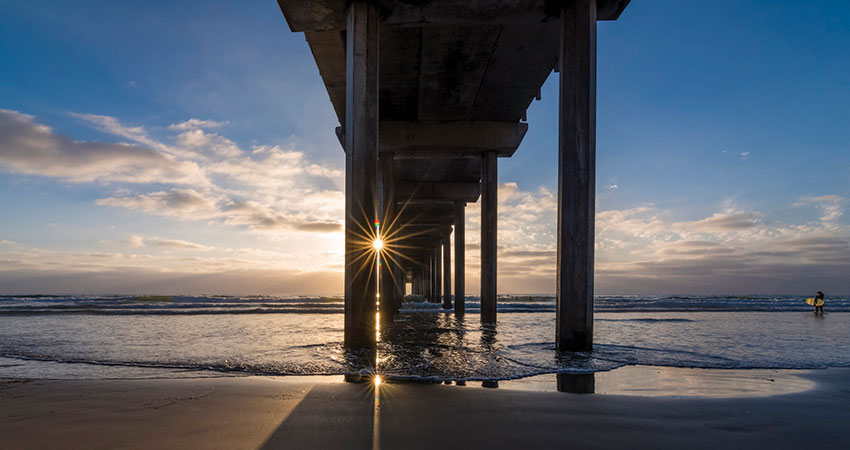
Institutional Seminar Series
Monday, March 31, 2025 at Scripps Seaside Forum Auditorium
12 p.m. Talks begin w/ Q&A
Pizza to be served after. Vegan and gluten-free options will be available.
Tomas Capaldi
Title: Fjords in the desert: Using the geologic record to understand drivers of deep-time climate change
Bio: Tomas is an Assistant Professor in the Geoscience Research Division at Scripps Institution of Oceanography. He is a geologist who uses the sedimentary record to track the life and death of mountain belts in ancient and modern settings worldwide. His goal is to understand the interactions between geodynamics and magmatism during mountain building and the climatic feedbacks such topography can create.
Valentina Di Santo
Title: Swimming against the current? Not always—How fishes navigate complex environments to save energy
Bio: Valentina is an Assistant Professor of Marine Animal Physiology at Scripps Institution of Oceanography, where she investigates how environmental factors influence fish locomotion and biomechanics. She studied Natural Sciences and Conservation Biology at the University of Florence (Italy) before earning a PhD in the Marine Program at Boston University, where she examined the effects of ocean acidification and warming on fish development and performance. Her research on fish biomechanics continued during postdoctoral work at Harvard University, leading to her current focus, where she integrates eco-physiology and biomechanics to explore how fish adjust their locomotor performance in response to environmental change, swim in schools, and even transition from water to land.




